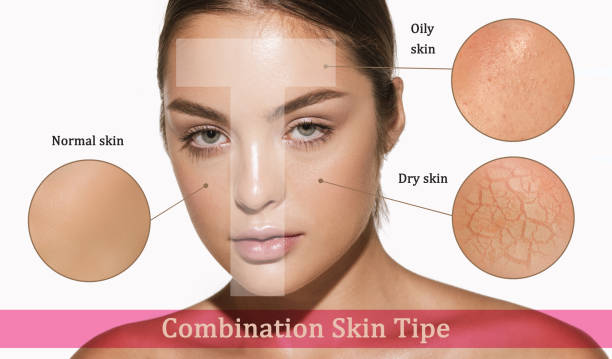Lemon to Lighten Skin: Easy Tips for a Brighter Complexion
Lemon juice has become a popular choice for those looking to lighten their skin. Many people turn to natural remedies over chemical options, seeking healthier alternatives. Using lemon juice can help fade dark spots and brighten your overall complexion when applied correctly.

You might be wondering how it works. The acidity of lemon juice combined with its vitamin C content can gently exfoliate your skin, helping to remove dead skin cells and reduce pigmentation. It’s an easy and accessible method, but there are important tips to keep in mind for safe use.
Before diving in, it’s key to know the best ways to use lemon juice for your skin type and the precautions to take. This guide will walk you through the effective methods and considerations so you can make the most of this citrus powerhouse.
Key Takeaways
- Lemon juice can naturally brighten and lighten skin.
- Proper application and care are essential for safety.
- Knowing your skin type helps in choosing the right treatment.
The Basics of Skin Lightening with Lemon
Using lemon for skin lightening can be effective due to its natural ingredients. You’ll find that lemon juice can brighten dark spots and even out skin tone, but it’s also important to know the risks involved.
Understanding Lemon’s Skin Benefits
Lemon is packed with citric acid and vitamin C. These components are great for brightening your skin. The citric acid acts as a mild exfoliant, helping to remove dead skin cells. Vitamin C is a powerful antioxidant that can protect your skin from damage caused by UV rays.
Lemon juice also has natural bleaching properties. Many people use it to lighten dark spots from acne or age spots. However, because lemon juice can make your skin more sensitive to sunlight, it’s vital to use broad-spectrum sunscreen after application.
Risks and Precautions of Lemon on Skin
When using lemon, it’s crucial to perform a patch test first. This can help you check for any potential skin irritation or allergic reaction. Some people may experience redness or a burning sensation. If that happens, discontinue use immediately.
Another thing to keep in mind is photosensitivity. Lemon juice can increase your skin’s sensitivity to sunlight, so it’s best to apply it in the evening. Always apply a good sun protection product during the day if you’ve used lemon at night. This helps to prevent further irritation and protects your skin from damage.
Enhancing Lemon Treatments
To get the best results from lemon for skin lightening, you can combine it with other natural ingredients. It’s also helpful to build a consistent skincare routine that includes lemon. Here’s how you can enhance your lemon treatments for better outcomes.
Combining Lemon with Other Natural Ingredients
Mixing lemon juice with ingredients like honey can amplify its benefits. Honey has antibacterial properties and is great for moisturizing your skin. Try blending lemon juice and honey in equal parts and applying it to your face. Leave it on for about 15-20 minutes, then rinse. This mixture can help brighten your skin naturally while keeping it soft.
Another powerful combo is lemon juice and turmeric. Turmeric acts as a natural skin lightening agent and also has anti-inflammatory properties. Mix a teaspoon of lemon juice with a pinch of turmeric, apply it to dark spots, and wash it off after 10-15 minutes.
You can also consider using aloe vera or coconut water as soothing bases for your lemon treatments. Aloe vera not only helps with moisturizing but also soothes irritation, making it a perfect match with lemon juice.
Lemon-Based Skin Care Routines
Building a skin care routine around lemon can maximize its effectiveness. Start by cleansing your face with a gentle cleanser. Exfoliation is key, so use a natural exfoliant like milk or a yogurt-lemon mixture once or twice a week.
After exfoliating, apply a lemon juice mask mixed with cucumber to hydrate and calm your skin. Leave it on for about 15 minutes. This routine can brighten your skin and help minimize dark spots.
Be sure to follow up with a good moisturizer to keep your skin hydrated. Using a daily routine that integrates these tips can lead to noticeable improvements in your skin’s appearance over time. Just remember to always patch test new mixtures first!
Addressing Specific Skin Concerns

Lemon can help address a couple of common skin issues: dark spots and oily skin. Using lemon juice may aid in brightening these concerns while providing other skin benefits, too.
Reducing Dark Spots and Hyperpigmentation
If dark spots or hyperpigmentation bother you, lemon juice can be a useful remedy. Its natural acidity helps reduce melanin production, which is responsible for those darker patches on your skin.
To use lemon for this purpose, apply freshly squeezed juice directly to the affected areas. Leave it on for about 10 minutes before rinsing off. This method can help brighten dark spots over time.
In addition to lemon, consider pairing it with other skin lightening products like kojic acid or glycolic acid for enhanced results. These ingredients work by exfoliating dead skin cells and promoting a more even skin tone.
Managing Oily Skin and Acne
For those struggling with oily skin or acne, lemon can be a great aid. The astringent properties of lemon juice help reduce excess oil, making your skin less shiny.
You can apply the juice lightly on your face, especially in oily areas. Its antibacterial and anti-inflammatory qualities can also help calm breakouts by reducing redness and swelling.
Mixing lemon juice with honey can further boost its benefits. Honey adds moisture without clogging pores and has its own acne-fighting properties. This combo makes for a soothing mask that helps balance your skin while fighting acne.
Safe Practices and Professional Advice
When considering using lemon for skin lightening, it’s important to be mindful of safety and the potential effects on your skin. Seeking professional guidance can help you avoid risks and find suitable alternatives.
When to See a Dermatologist
If you experience redness, stinging, or irritation after using lemon juice, it’s time to consult a dermatologist. These symptoms can signal an adverse reaction or sensitivity. A dermatologist can assess your skin type and recommend proper treatments.
If you’re considering stronger options like hydroquinone, which can lighten skin effectively but may have side effects, professional advice is crucial. They can also guide you on using sunscreens to protect your skin. Remember, some natural acids can make your skin photosensitive, increasing the risk of sun damage.
Alternatives to Lemon for Skin Lightening
If lemon doesn’t seem safe or effective for you, there are gentler alternatives. Options like curcumin, found in turmeric, serve as a natural bleaching agent that may lighten skin tone without causing irritation.
You can also consider products with alpha-hydroxy acids (AHAs) that promote cell renewal and have exfoliating properties. Some dermatologists recommend ingredients such as kojic acid or arbutin, which offer skin brightening without the harshness of lemon.
Additionally, explore essential oils that are known to improve skin appearance. Always patch-test new products and consult a skincare professional before starting any treatment. This is especially vital for those wanting to reduce freckles or achieve a brighter complexion safely.
Frequently Asked Questions
When considering using lemon for skin lightening, many questions might come to mind. This section addresses common inquiries to help you understand how to use lemon safely and effectively for your skin.
How do you apply lemon for skin whitening?
To apply lemon for skin whitening, start by squeezing fresh lemon juice into a bowl. Use a cotton ball or your fingers to gently dab the juice onto the areas you want to lighten. Leave it on for about 10-15 minutes before rinsing off with cool water. Always do a patch test first.
Can lemon juice provide permanent skin lightening results?
Lemon juice can temporarily lighten skin due to its natural bleaching properties. However, it does not provide permanent results. For lasting effects, you will need consistent application along with a proper skincare routine.
What are the potential side effects of using lemon on your face?
Using lemon on your face can lead to irritation, redness, or even peeling. Its acidity may cause sensitivity, especially if you have sensitive skin or sunburn. Always use caution and consult a dermatologist if you experience severe reactions.
How quickly can you see results from using lemon for skin lightening?
Results from using lemon juice may vary from person to person. Some people might notice lightening effects in a few weeks with regular use, while others may take longer to see changes. Be patient and consistent with your routine.
What should you expect after using lemon to lighten skin overnight?
If you leave lemon juice on your skin overnight, you might wake up with slightly lighter skin in the morning. However, it may also cause irritation for some. It’s generally safer to use lemon for shorter periods rather than overnight to avoid potential negative reactions.
Is it safe to use lemon on your face every day for skin whitening?
Using lemon on your face every day is not recommended. Daily application can lead to irritation and over-drying. Consider using it 2-3 times a week for best results while keeping your skin care routine balanced and gentle.

